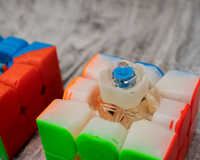Introduction
In today’s fast-paced world, it's easy to overlook the subtle factors that can negatively impact our children's mental and emotional well-being. As parents, we strive to provide the best for our kids, but certain everyday practices can inadvertently harm their development.
Here, we explore some common daily life things that can ruin your kids' minds and offer suggestions on how to mitigate these effects.
1. Overexposure to Mobile Phones

The issue
Giving kids mobile phones at an early age has become a common practice. While these devices can be educational and entertaining, excessive use can lead to several issues. Prolonged screen time can affect their attention span, sleep patterns, and social skills. The content they access may not always be appropriate, and the constant stimulation can hinder their ability to focus and relax.
The solution
- Limit daily mobile phone use with age-appropriate, educational content.
- Promote outdoor activities like park play, biking, and team sports.
- Include indoor mind-stimulating games such as Rubik's Cubes, chess, Scrabble, puzzles, and building blocks.
- Establish tech-free mealtimes for real-world connections.
- Ensure devices are off well before bedtime to encourage restful sleep.
By setting these boundaries and balancing digital and physical activities, children can enjoy technology's benefits without its drawbacks.
2. Lack of Quality Family Time

The issue
Finding quality time to spend with family can be challenging in our busy lives. However, insufficient family time can leave kids feeling neglected and emotionally distant. Children who do not receive enough attention from their parents may develop behavioural problems and a lack of emotional security.
The solution
Make Family Time a Priority
- Set aside daily or weekly time for family activities.
- Have regular family meals to share your day.
- Engage in indoor games like board games, puzzles, and crafts, as well as outdoor activities like catch, walks, and sports.
- Plan trips to parks, museums, or family hikes.

Engage in Meaningful Conversations
- Actively listen to your children's thoughts and concerns.
- Share your own experiences to create an open and supportive environment.
Prioritising family activities and meaningful conversations strengthens family bonds and provides a supportive environment for kids to express themselves.
3. Not Providing Mind-Sharpening Games
The issue
Play is an essential part of a child's development. However, not all games are created equal. Games that do not challenge the mind can result in missed opportunities for cognitive development. On the other hand, mind-sharpening games can enhance problem-solving skills, creativity, and critical thinking.
The solution
Introduce Mind-Stimulating Games and Activities
- Engage in Rubik's Cube, Daily Calendar Puzzles, Snake Puzzles, and Column Stacking Puzzles to enhance cognitive skills.
- Play strategy games like chess, Scrabble, and Settlers of Catan.
- Use fun, intellectually enriching educational apps.

Encourage Strategic and Creative Hobbies
- Use LEGO to foster creativity and spatial awareness.
- Enhance creativity and fine motor skills through drawing, painting, or crafting.
- Improve memory, coordination, and concentration by learning to play a musical instrument.
Incorporating these activities ensures children are entertained and intellectually stimulated, promoting cognitive growth and development.
4. Not providing a Healthy Diet

The issue
Diet plays a crucial role in a child's physical and mental health. Consuming too much junk food and sugary snacks can lead to obesity, poor concentration, and mood swings. An unhealthy diet can also impact their energy levels and overall well-being.
The solution
Promote a Balanced Diet
- Encourage a diet rich in fruits, vegetables, whole grains, and lean proteins.
- Reduce the intake of processed foods and sugary drinks.
Involve Kids in Meal Planning and Preparation
- Teach children about healthy eating by involving them in meal planning and preparation.
5. Inconsistent Routines
The issue
Children thrive on routine and structure. Inconsistent routines can cause anxiety and behavioral issues. A lack of regular sleep schedules, irregular meal times, and chaotic daily routines can negatively impact their mental and emotional stability.
The solution
Establish and Maintain Consistent Daily Routines
- Ensure children go to bed and wake up at the same time each day for regular sleep schedules.
- Have consistent meal times to provide structure.
- Set specific times for homework, play, and relaxation.
Consistency helps children feel secure and understand what to expect, reducing anxiety and promoting a sense of stability.
6. Neglecting Emotional Health
The issue
Emotional health is as important as physical health. Children who do not learn to express and manage their emotions may struggle with stress, anxiety, and depression. Overlooking their emotional needs can lead to long-term mental health issues.
The solution
Teach and Encourage Healthy Emotional Expression
- Teach children about emotions and healthy expression.
- Encourage open communication and validate their feelings.
- Provide a safe and supportive environment for sharing emotions.
- Help children develop coping strategies for stress and adversity.
By focusing on emotional health, you can help your children manage their emotions effectively, reducing the risk of long-term mental health issues.
Conclusion
As parents, it's crucial to be aware of the everyday factors that can impact our children's minds. By being mindful of mobile phone usage, prioritizing family time, providing mind-sharpening games, ensuring a healthy diet, maintaining consistent routines, and nurturing their emotional health, we can help our kids grow into well-rounded and resilient individuals.
Small changes in our daily practices can make a significant difference in their mental and emotional development, setting the foundation for a healthier and happier future.
































